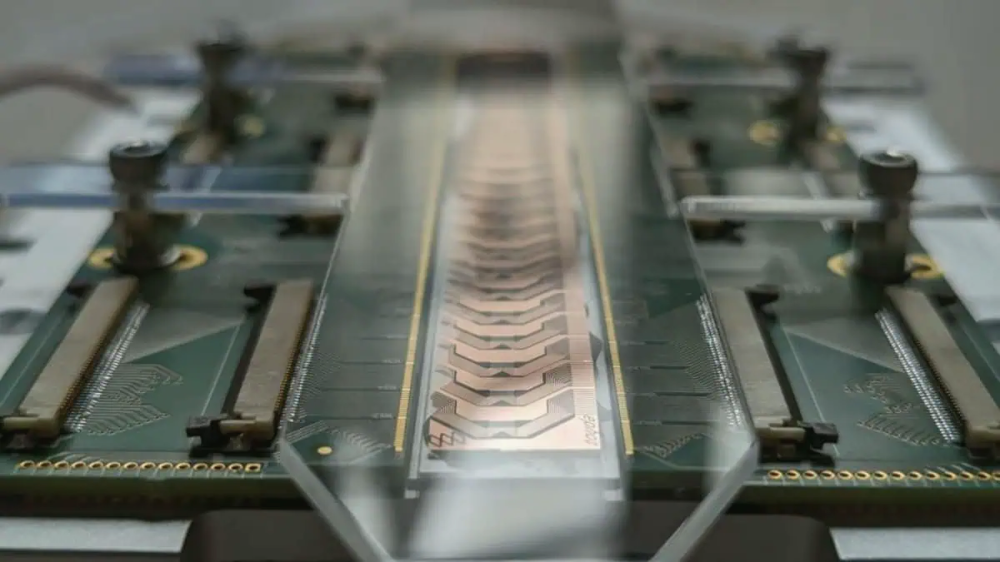A team of scientists from Italy, Germany, and France is actively working on the development of a novel quantum computer that relies on innovative glass photonic chips.
While quantum computers promise to outperform traditional systems significantly, their implementation faces numerous challenges. The project initiated by the Polytechnic University of Milan brings together specialists from renowned research institutions and small enterprises in Italy, Germany, and France, aiming to enhance quantum characteristics through the use of glass.
Researchers are utilizing specialized glass chips developed by Ephos to create a photonic quantum computer. These chips can process and transmit data using light and support up to 200 reconfigurable optical modes, allowing for dynamic control of light movement within the chip.
"Using materials that allow light to pass is crucial, yet challenging, as it is necessary to contain the light without allowing for its absorption," explains Julia Acconcia from the Polytechnic University of Milan.
The scientists aim to generate individual photons and direct them through glass circuits, which could potentially address pressing issues such as the development of more effective batteries, new medicines, and the exploration of the universe. Laser printing technology on glass is particularly promising. The process generates light particles that enter the chip through optical fibers, and since everything is made of glass, the risk of photon deviation is minimal.
Currently, the German company Pixel Photonics is enhancing highly sensitive detectors to register each photon, while Schott AG provides high-quality glass substrates.
The research team, led by Julia Acconcia, is developing high-performance electronics to manage the system. Simultaneously, experimental quantum optics specialists from the Sapienza University of Rome are involved in single-photon generation.
The French Single Fund is developing open-source software for quantum computing. Teams from the National Center for Scientific Research and the University of Montpellier are modeling innovative solutions for energy storage, which is a critical foundation for future quantum technology applications.
The QLASS researchers share a common goal: to create a functional photonic quantum device at the Sapienza University by 2026. Once the project is complete, the software developed at the University of Montpellier and the Single Fund will be used to test the device.
The first task for the new quantum computer will be to develop advanced lithium-ion batteries. By utilizing variational quantum algorithms—specific instructions that aid quantum machines in solving problems more effectively—quantum computing can model battery chemistry, accelerate the search for new materials, and even enhance state monitoring.
Although scientists understand the laws governing atoms and compounds, tracking their interactions in real time is incredibly complex and exceeds the capabilities of modern silicon computers. Researchers expect that quantum computers will expedite the development of new materials for batteries and medicines.
The findings of the research have been published in Horizon Magazine.
Source: ZMEScience


